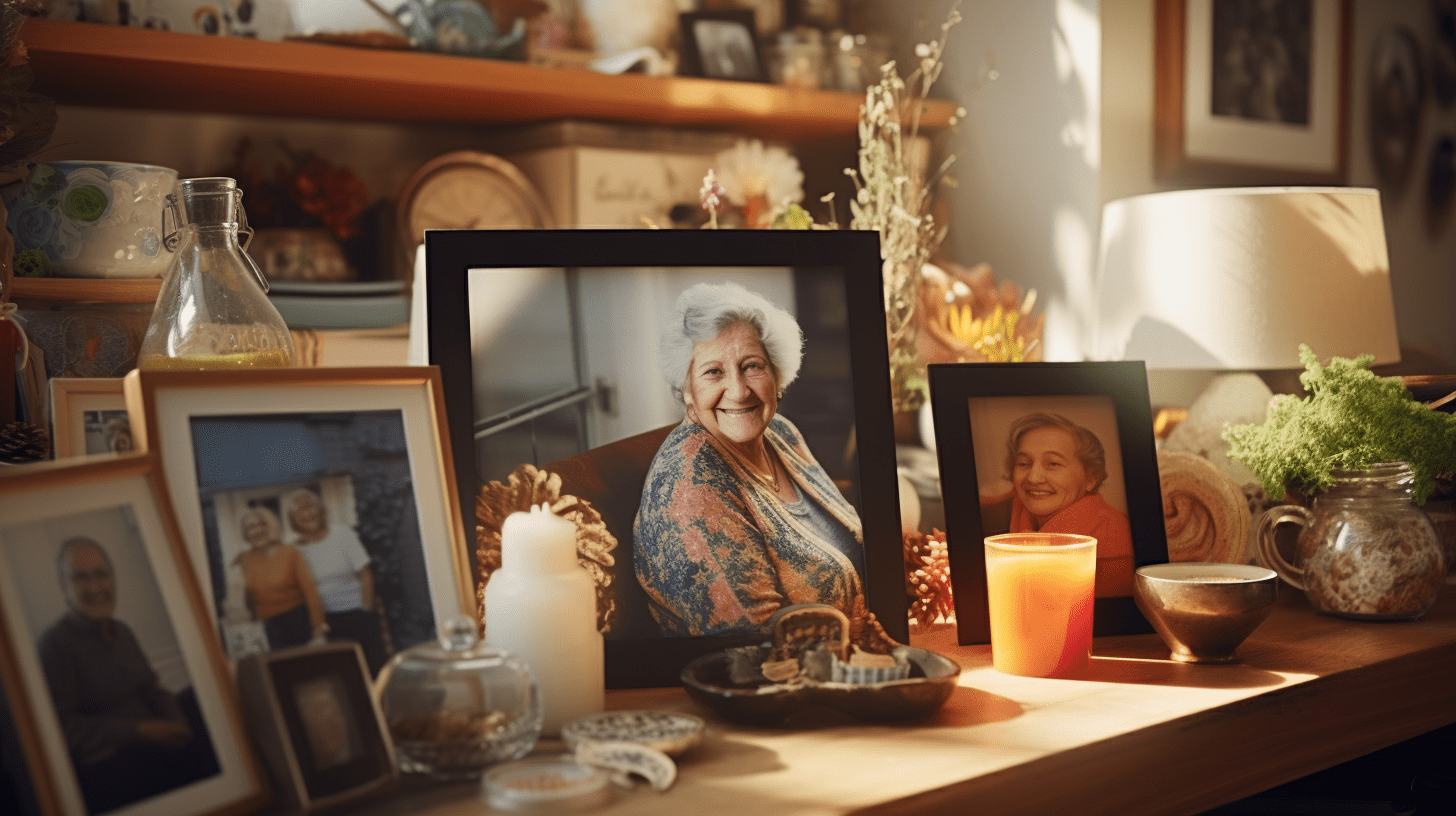Key Takeaways
- SonderCare offers a range of hospital beds designed to enhance the comfort and safety of dementia patients in nursing homes.
- The Aura Premium Hospital Bed has a four-section mattress support platform, flexible hand control, backup battery system, and lockout control system, making it easy to adjust and prevent accidental adjustments.
- The Aura Extra Wide Hospital Bed offers the same features as the Aura Premium Bed but with an extra-wide design for patients who need more space.
- The top-of-the-line Aura Platinum Hospital Bed offers the highest level of comfort and safety, with an eight-function hand control, wall bumper, bed exit alarm system, and a weight capacity of up to 500 lbs.
Dementia is a progressive cognitive decline that poses unique challenges for both patients and caregivers. As the population ages, the number of individuals with dementia is expected to rise, making it crucial to develop effective strategies to provide the best possible care and support for these individuals.
The introduction is a crucial part of any approach to dementia care in nursing homes. It sets the tone for the patient’s experience and establishes a sense of trust and familiarity. Introducing oneself to the patient, using their preferred name, and maintaining eye contact can help establish a connection and create a sense of comfort.
Challenges faced when dealing with dementia patients in nursing homes include communication difficulties, agitation, and confusion. Effective strategies for communication involve using simple and clear language, speaking slowly and calmly, and using non-verbal cues such as gestures and facial expressions. It is also important to be patient and allow the patient enough time to process information and respond.
Another challenge is managing agitation and confusion. Engaging the patient in calming activities, such as listening to soothing music or engaging in sensory stimulation, can help reduce agitation. Creating a structured routine and providing a familiar environment can also help reduce confusion.
Understanding Dementia and Its Impact on Patients
Understanding dementia and its impact on patients is crucial for developing effective strategies in nursing homes. Dementia is a progressive condition that affects memory, thinking, and behavior, making it challenging for patients to engage in daily activities. In nursing homes, where individuals with dementia often reside, it is important to recognize how this condition can disrupt their lives and well-being. By gaining a comprehensive understanding of dementia and its effects, caregivers can implement strategies that promote a supportive and compassionate environment for these individuals.
What Is Dementia
Dementia is a prevalent neurological disorder that affects millions of individuals worldwide, significantly impacting their cognitive abilities and daily functioning. Understanding the symptoms of dementia is crucial in providing appropriate care and support for patients. Here are some key symptoms associated with dementia:
- Memory loss: Dementia often leads to a decline in memory, making it difficult for individuals to remember recent events or retain new information.
- Communication difficulties: Patients may struggle to find the right words or express themselves effectively, causing frustration and isolation.
- Impaired judgment and decision-making: Dementia can affect a person’s ability to make sound judgments and decisions, leading to poor choices or risky behavior.
- Behavioral changes: Patients may experience mood swings, agitation, or aggression, making it challenging to manage their emotions.
Having a compassionate and knowledgeable understanding of these symptoms is essential for healthcare providers and caregivers to create a supportive and safe environment for dementia patients.
How Does Dementia Affect Daily Life in Nursing Homes
Dementia significantly disrupts the daily lives of patients residing in nursing homes, affecting their cognitive abilities, functional independence, and overall quality of life. As dementia progresses, individuals may experience memory loss, confusion, difficulty with communication, and challenges in performing basic activities of daily living. These changes can be distressing for both the patients and their caregivers. Therefore, it is crucial for nursing homes to implement effective dementia care approaches that promote the well-being of the residents. This includes creating a calm and structured environment, providing personalized care plans, engaging patients in meaningful activities, and ensuring safety measures are in place. By understanding the impact of dementia on daily life and implementing appropriate strategies, nursing homes can enhance the quality of life for their residents and provide compassionate care.
Effective Communication Strategies for Dementia Patients
When it comes to communicating with dementia patients, patience and empathy are key. It is important to understand that their cognitive abilities may be impaired, and it may take them longer to process information. Using simplified language and non-verbal cues can help facilitate understanding and connection. By approaching communication with compassion and understanding, caregivers can create a supportive and comforting environment for dementia patients in nursing homes.
The Importance of Patience and Empathy
The cultivation of patience and empathy is crucial when implementing effective communication strategies for dementia patients in nursing homes. These individuals often face challenges in expressing themselves and understanding others, making it essential for caregivers to approach them with compassion and understanding. When working with dementia patients, it is important to remember the following:
- Importance of Validation Therapy: Validation therapy involves acknowledging and empathizing with the emotions and experiences of dementia patients, even if they seem confused or disoriented. By validating their feelings and providing a safe space for expression, caregivers can foster trust and create a meaningful connection.
- Benefits of Sensory Gardens: Sensory gardens can provide a therapeutic environment for dementia patients, engaging their senses and promoting relaxation. The sights, sounds, and textures found in these gardens can help stimulate memories, reduce anxiety, and improve overall well-being.
- Active Listening: Taking the time to actively listen to dementia patients, even when their words may seem nonsensical, is crucial. By focusing on their emotions and nonverbal cues, caregivers can better understand their needs and respond in a compassionate manner.
- Nonverbal Communication: Nonverbal communication, such as gentle touch, facial expressions, and body language, can be powerful tools for connecting with dementia patients. These forms of communication can convey empathy, comfort, and reassurance when words may not be understood.
Using Simplified Language and Non-Verbal Cues
One key strategy for effectively communicating with dementia patients in nursing homes is to use simplified language and non-verbal cues. Dementia can often impair a person’s ability to understand and process complex information, making it important to use clear and concise language when speaking to them. Simplified language techniques involve using short sentences, simple words, and concrete terms to convey messages. Additionally, non-verbal communication methods such as gestures, facial expressions, and touch can help bridge the communication gap with dementia patients. These methods can be especially effective as they rely on visual cues and emotions, which are often easier for dementia patients to understand and respond to. By utilizing simplified language and non-verbal cues, caregivers can enhance communication with dementia patients, promoting a sense of understanding and connection.
| Simplified Language Techniques | Non-Verbal Communication Methods |
|---|---|
| Use short sentences | Utilize gestures and hand signals |
| Speak slowly and clearly | Use facial expressions |
| Use simple words | Maintain eye contact |
| Repeat important information | Use touch and physical cues |
| Use visual aids | Smile and nod to show agreement |
Personalized Care for Dementia Patients
When caring for dementia patients in nursing homes, it is crucial to recognize their individual needs and preferences. Each person has unique likes, dislikes, and abilities, and tailoring care to their specific requirements can greatly enhance their quality of life. Additionally, incorporating familiar routines and activities can provide a sense of comfort and familiarity, helping to reduce anxiety and promote a sense of well-being. By personalizing care for dementia patients, we can create a nurturing and supportive environment that promotes their overall well-being.
Recognizing Individual Needs and Preferences
While caring for dementia patients in nursing homes, it is crucial to recognize their individual needs and preferences in order to provide personalized care. Each person with dementia is unique and requires a person-centered approach that promotes independence and dignity. Here are four important considerations when recognizing their needs and preferences:
- Tailoring care plans: Understanding each individual’s background, interests, and abilities allows for the creation of customized care plans that meet their specific needs and preferences.
- Communication style: Recognizing and adapting to the communication style of each patient, whether it is verbal or non-verbal, helps to establish a meaningful connection and foster effective communication.
- Respect for autonomy: Respecting and encouraging their autonomy and decision-making abilities empower dementia patients to maintain a sense of control over their lives.
- Maintaining familiar environments: Creating a familiar and comforting environment by incorporating personal belongings and familiar objects helps to reduce anxiety and confusion.
Incorporating Familiar Routines and Activities
During the care of dementia patients in nursing homes, incorporating familiar routines and activities is essential for providing personalized care. Dementia can cause confusion and disorientation, but familiar routines can help create a sense of comfort and stability for these individuals. By incorporating sensory activities such as listening to familiar music or engaging in familiar hobbies, caregivers can stimulate the senses and evoke positive memories. Additionally, promoting social engagement is crucial for maintaining cognitive function and emotional well-being. Encouraging participation in group activities, such as art therapy or reminiscence groups, can provide opportunities for social interaction and connection with others. It is important for caregivers to understand the unique preferences and interests of each dementia patient to create personalized care plans that incorporate familiar routines and activities, ultimately enhancing their quality of life.
Creating a Safe and Comfortable Environment
Creating a safe and comfortable environment is crucial when caring for dementia patients in nursing homes. The room setup should be designed to promote familiarity and reduce confusion, incorporating familiar objects and personal belongings. Additionally, high-quality equipment, such as SonderCare beds, plays a vital role in enhancing patient comfort and safety, providing features like adjustable positioning and bed exit alarm systems. By prioritizing these aspects, nursing homes can create an environment that supports the well-being and overall quality of life for dementia patients.
Importance of Room Setup and Familiar Objects
The arrangement of furniture and the presence of familiar personal belongings in a dementia patient’s room play a crucial role in establishing a safe and comfortable environment. Creating a room layout that is both functional and familiar can greatly enhance the well-being of individuals with dementia. Here are four important aspects to consider when setting up a room for a dementia patient:
- Clear pathways: Ensuring that there are clear pathways in the room can prevent accidents and promote mobility for the patient.
- Familiar objects: Placing familiar objects, such as family photos or treasured possessions, can help evoke positive memories and provide a sense of comfort and familiarity.
- Memory aids: Incorporating memory aids, such as labeled drawers or visual cues, can help individuals with dementia navigate their surroundings and maintain a sense of independence.
- Safety features: Installing safety features, such as grab bars or non-slip flooring, can reduce the risk of falls and promote a secure environment.
Role of High-Quality Equipment in Enhancing Patient Comfort
One crucial factor in creating a safe and comfortable environment for dementia patients in nursing homes is the use of high-quality equipment that enhances patient comfort and well-being. The role of technology in dementia care cannot be overstated, as it has revolutionized the way we provide care for individuals with this condition. High-quality equipment, such as specialized beds, can greatly contribute to the comfort and safety of dementia patients. These beds are designed to provide optimal support and positioning options, allowing patients to rest and sleep peacefully. Additionally, therapeutic environments created through the use of high-quality equipment can have numerous benefits, including reducing anxiety and agitation, promoting relaxation, and improving overall quality of life. SonderCare beds, in particular, are known for their exceptional quality and features that contribute to a safe and comfortable environment for dementia patients.
How SonderCare Beds Contribute to a Safe Environment for Dementia Patients
SonderCare beds are specifically designed to create a safe and comfortable environment for dementia patients. These beds offer features such as a four-section mattress support platform, flexible hand controls, backup battery systems, and lockout control systems to prevent accidental adjustments. With their intuitive design and focus on user comfort and safety, SonderCare beds contribute to a secure and supportive setting for dementia patients in nursing homes.
Specific Features of SonderCare Beds Beneficial for Dementia Care
How do SonderCare beds contribute to creating a safe environment for dementia patients?
- SonderCare beds have a four-section mattress support platform, allowing for various positioning options, ensuring the comfort and safety of the patient.
- These beds feature a wired hand control with a flexible goose neck, making it easy to adjust and put away.
- SonderCare beds have a backup battery system, ensuring uninterrupted care even during power outages.
- The lockout control system prevents accidental adjustments, providing a secure environment for dementia patients.
Therapeutic Approaches to Enhance Well-being
When it comes to dealing with dementia patients in nursing homes, therapeutic approaches play a crucial role in enhancing their overall well-being. Music and art therapy have proven to be effective in reducing agitation and improving mood. Sensory stimulation, such as engaging the senses through aromatherapy or tactile activities, can help stimulate cognitive function and provide a calming effect. Lastly, reminiscence activities, such as looking through photo albums or engaging in storytelling, can help evoke positive memories and foster a sense of connection and identity. These approaches, when implemented with compassion and expertise, can greatly contribute to the well-being of dementia patients in nursing homes.
Benefits of Music and Art Therapy
One effective approach to enhancing the well-being of dementia patients in nursing homes is through the use of music and art therapy. These therapies offer a range of benefits that promote emotional, cognitive, and physical well-being. Here are some of the benefits of music and art therapy for dementia patients:
- Enhanced emotional expression: Music and art therapy provide a creative outlet for patients to express their emotions, reducing feelings of frustration or agitation.
- Improved cognitive function: Engaging in music and art stimulates the brain and can improve cognitive abilities such as memory, attention, and problem-solving skills.
- Increased social interaction: Participating in group music or art sessions encourages socialization and fosters a sense of connection and belonging among patients.
- Relaxation and stress reduction: Listening to calming music or engaging in art activities can promote relaxation, reduce anxiety, and alleviate stress.
Incorporating nature therapy, such as using sounds of nature or incorporating natural elements in art projects, can further enhance the therapeutic benefits for dementia patients. Music and art therapy provide a holistic and person-centered approach to care, promoting well-being and improving the quality of life for dementia patients in nursing homes.
Sensory Stimulation and Reminiscence Activities
Sensory stimulation and reminiscence activities are effective therapeutic approaches that enhance the well-being of dementia patients in nursing homes. By engaging the senses and tapping into past memories, these techniques can help improve cognitive function, reduce agitation, and promote a sense of calm and contentment. Sensory stimulation techniques, such as aromatherapy, music therapy, and tactile activities, provide individuals with dementia the opportunity to connect with their environment and experience a range of sensations. Reminiscence therapy, on the other hand, encourages patients to recall and share personal memories, fostering a sense of identity and promoting social interaction. These activities can be tailored to each individual’s preferences and abilities, ensuring a person-centered approach to care. Incorporating sensory stimulation and reminiscence activities into daily routines can greatly contribute to the overall well-being and quality of life for dementia patients in nursing homes.
Managing Challenging Behaviors
When dealing with dementia patients in nursing homes, it is important to focus on managing challenging behaviors. This involves identifying triggers that may lead to agitation and implementing preventive strategies. Non-pharmacological interventions should be prioritized over medications, as they can help to alleviate symptoms and promote a sense of well-being for the patients. By approaching these behaviors with compassion and utilizing effective strategies, caregivers can create a more positive and supportive environment for individuals with dementia.
Identifying Triggers and Preventing Agitation
Identifying specific triggers and implementing effective strategies to prevent agitation is crucial in managing the challenging behaviors of dementia patients in nursing homes. When it comes to reducing agitation and promoting a calm environment, here are some strategies that can be helpful:
- Establishing a predictable routine: Creating a structured schedule can provide a sense of stability and reduce confusion for dementia patients.
- Creating a soothing environment: Incorporating calming elements such as soft lighting, soothing music, and familiar objects can help create a peaceful atmosphere.
- Providing meaningful activities: Engaging dementia patients in activities that they enjoy and find purposeful can help redirect their energy and reduce restlessness.
- Offering reassurance and validation: Providing emotional support, validating their feelings, and using calm and reassuring communication techniques can help alleviate anxiety and prevent agitation.
Non-Pharmacological Interventions Over Medications
One effective strategy for managing challenging behaviors in dementia patients in nursing homes is through the implementation of non-pharmacological interventions rather than relying solely on medications. Residential care facilities have recognized the importance of providing alternative therapies to address the complex needs of individuals with dementia. These therapies focus on improving the overall well-being and quality of life for residents by engaging them in activities that stimulate their cognitive, emotional, and physical abilities.
To illustrate the wide range of non-pharmacological interventions available in residential care settings, the following table presents a few examples:
| Intervention | Description | Benefits |
|---|---|---|
| Music therapy | Using music to stimulate memory and emotions | Reduces agitation, improves mood and socialization |
| Reminiscence therapy | Encouraging individuals to recall past experiences | Enhances cognitive function and self-esteem |
| Pet therapy | Interacting with trained animals for companionship | Decreases anxiety and promotes relaxation |
Training and Support for Nursing Home Staff
Training and support for nursing home staff is crucial in effectively dealing with dementia patients. By providing essential training modules that focus on understanding dementia and its symptoms, staff members can develop the necessary skills to handle challenging behaviors and provide the best care possible. Continuous learning and peer support should also be emphasized to ensure that staff members stay up-to-date with the latest research and strategies for managing dementia-related issues, fostering a compassionate and knowledgeable environment in nursing homes.
Essential Training Modules for Handling Dementia Patients
When it comes to providing optimal care for dementia patients in nursing homes, it is crucial for nursing home staff to undergo comprehensive training modules that focus on understanding and effectively managing the unique challenges associated with dementia. These training modules should cover a range of essential topics, including:
- Dementia care techniques: Staff should be trained in evidence-based techniques for communicating with and providing care to dementia patients. This includes understanding the progression of the disease, managing challenging behaviors, and promoting a supportive and safe environment.
- Person-centered care: Training should emphasize the importance of individualized care plans that take into account each patient’s preferences, abilities, and needs. This includes promoting independence and dignity while ensuring their safety.
- Caregiver support programs: Staff should be educated on resources and support programs available to caregivers of dementia patients. This includes providing emotional support, teaching stress management techniques, and offering resources for respite care.
- Effective communication: Training should focus on effective communication strategies that help staff engage with dementia patients, including using simple and clear language, non-verbal cues, and active listening skills.
Emphasizing Continuous Learning and Peer Support
To ensure ongoing professional development and enhance the quality of care provided to dementia patients in nursing homes, it is vital to prioritize continuous learning and peer support for nursing home staff. Continuous learning allows staff members to stay updated on the latest research, techniques, and best practices in dementia care. This knowledge empowers them to provide the highest level of care and adapt to the evolving needs of their patients. Peer support is equally important, as it creates a network of understanding and collaboration among staff members. This support system fosters a sense of community, where staff can share experiences, seek advice, and learn from one another. By emphasizing continuous learning and peer support, nursing home staff can enhance their skills, build confidence, and ultimately improve the quality of life for dementia patients. Transitioning into the involvement of family and loved ones, it is essential to create a holistic care approach that includes their active participation.
Involvement of Family and Loved Ones
The involvement of family and loved ones is crucial in providing effective care for dementia patients in nursing homes. Encouraging regular visits and participation can help maintain a sense of familiarity and connection for the patient. Additionally, educating families on effective communication and interaction strategies can enhance the quality of interactions and improve the overall well-being of the patient.
Encouraging Regular Visits and Participation
Regular visits and participation from family and loved ones play a crucial role in the overall well-being and quality of life for dementia patients in nursing homes. When family members and loved ones are actively involved in the lives of dementia patients, it can provide a sense of familiarity and comfort, reducing feelings of loneliness and isolation. Here are some ways to encourage regular visits and participation:
- Promote support groups for family members, where they can connect with others who are going through similar experiences. This can provide emotional support and a safe space to share their concerns and challenges.
- Implement reminiscence therapy, which involves using photographs, music, and other items to trigger memories and promote conversations. This can help family members and loved ones engage with dementia patients on a deeper level.
- Create a welcoming and inviting environment in the nursing home, with comfortable seating areas and spaces for family members to spend quality time with their loved ones.
- Provide educational resources and training for family members, so they can better understand the needs of dementia patients and feel empowered to provide meaningful support.
Educating Families on Effective Communication and Interaction Strategies
During the initial intake process, families of dementia patients in nursing homes should be educated on effective communication and interaction strategies to ensure optimal care and support. It is important for families to have a deep understanding of the unique challenges and needs that dementia patients face in order to provide the best possible care. Educating families on personalized activities and environmental modifications can greatly enhance the quality of life for dementia patients.
To evoke emotion and create a visual representation of the impact of these strategies, let’s take a look at the following table:
| Personalized Activities | Environmental Modifications |
|---|---|
| Engaging in hobbies and interests that the patient enjoys | Creating a calm and soothing environment |
| Encouraging reminiscence and storytelling | Minimizing noise and distractions |
| Incorporating music and art therapy | Ensuring proper lighting and visibility |
| Stimulating the senses with aromatherapy or tactile activities | Implementing safety measures to prevent accidents |
| Encouraging social interactions with family and loved ones | Creating a familiar and comfortable space |
Monitoring and Adapting to Changing Needs
Monitoring and adapting to the changing needs of dementia patients in nursing homes is crucial for providing optimal care. Regular assessments and care plan revisions are essential to ensure that the patients’ needs are being met and that any changes in their condition are addressed promptly. Additionally, utilizing technological solutions for continuous monitoring can help caregivers stay informed about the patients’ health and safety, allowing for timely interventions and personalized care. By staying vigilant and adaptable, nursing homes can create a supportive and responsive environment for dementia patients.
Regular Assessments and Care Plan Revisions
Consistently evaluating and adjusting care plans based on changing needs is crucial for effectively managing the care of dementia patients in nursing homes. It is important to take a person-centered care approach, considering the unique needs, preferences, and abilities of each individual. A holistic approach should be taken, considering not only the physical health of the patient, but also their emotional, social, and spiritual well-being. Regular assessments should be conducted to monitor the patient’s condition and identify any changes or decline in their cognitive abilities. Care plans should be revised accordingly, with input from the patient, their family, and the healthcare team. This may involve modifying daily routines, activities, and communication strategies to better meet the evolving needs of the patient. Open and ongoing communication is key to ensuring that the care plan remains effective and provides the highest quality of care for the dementia patient.
Utilizing Technological Solutions for Continuous Monitoring
One final strategy for adapting to the changing needs of dementia patients in nursing homes is to utilize technological solutions for continuous monitoring. Continuous monitoring technology provides innovative care solutions that can help ensure the safety and well-being of dementia patients. These technological solutions include wearable devices, motion sensors, and smart home systems that can monitor vital signs, detect falls, and track the patient’s movement and behavior patterns. By continuously monitoring the patients, caregivers can quickly identify any changes in their condition and provide timely interventions. This technology not only enhances the quality of care but also provides peace of mind for both the patients and their families. With the help of continuous monitoring technology, nursing homes can create a safe and supportive environment for dementia patients, enabling them to maintain their independence and dignity for as long as possible.
—–
Effective strategies for managing dementia in nursing homes rest on a foundation of empathy, personalized engagement, and environmental adaptation. By prioritizing person-centered care, continuously educating staff, and fostering a safe, interactive community, we can significantly enhance the quality of life for those with dementia, ensuring that every day is lived with dignity and a sense of belonging.
- example
Frequently Asked Questions About Strategies for Nursing Homes That Offer Dementia Care
Effective strategies include creating a structured and safe environment, engaging in personalized and meaningful activities, using non-verbal communication techniques, implementing consistent routines, and providing specialized training for staff in dementia care.
A dementia-friendly environment in nursing homes can be created by ensuring safe and easy-to-navigate spaces, using clear signage, minimizing noise and clutter, providing sensory stimulation through colors and textures, and creating areas for social interaction.
Personalized care is crucial in managing dementia patients, as it involves understanding each individual’s history, preferences, and needs. This approach helps in providing comfort, reducing anxiety, and engaging patients in meaningful activities.
Behavioral challenges can be managed by identifying triggers, employing de-escalation techniques, using therapeutic activities to redirect attention, and ensuring that staff are trained in understanding and responding to dementia-related behaviors.
Nursing homes ensure physical well-being by providing regular health check-ups, managing medications, offering nutritious meals tailored to individual needs, and facilitating physical activities that are suitable for their abilities and health status.
















